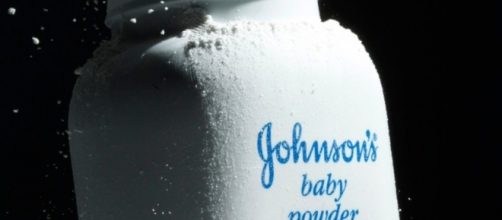Over the past few years, a number of women have come forward with claims against makers of baby powders, alleging that continued use of their product has led to ovarian cancer. Late Thursday night, a jury in St. Louis found such a claim to not only be true but awarded the plaintiff, 62-year-old Lois Slemp, of Wise, Virginia, a record-breaking payout of $110.5 million.
Award is latest of several wins against Johnson & Johnson
Before Slemp's win against Johnson & Johnson on Thursday evening, St. Louis juries had awarded approximately $197 million to 3 women with similar claims of cancer-causing powders.
All of the previous cases, including that of a formerly record-breaking payout for $97 million are currently under appeal. It is assumed that the company will also be appealing the decision of Slemp's case, as they get ready for even more trials across North America in the coming year.
There are currently 2,000 cases open in state and federal courts regarding the safety of long-term talcum powder use and many names Johnson & Johnson and French mineral talc processor Imerys as defendants. Some class-action lawsuits have also been filed in Canada.
Consumer groups and corporations differ in ideas of powder safety
While the scientific community began finding links between talc and ovarian cancers in 1971, the top maker of talcum powder in America has repeatedly argued that its product is safe for consumers.
According to its website, Johnson & Johnson has found that "[s]cience, research, clinical evidence and 30 years of studies by medical experts around the world continue to support the safety of talc in cosmetic products."
However, in 1982 a Harvard University medical professor named Dr. Daniel Cramer published a study that found talcum powder can cause a severe increase in risk for ovarian cancer. The report claimed that using the powder in the female genital area can increase a woman's cancer risk by up to 92%. Dr. Cramer has since been called as an expert in some trials against the makers of baby powders, including Johnson & Johnson. He has also advocated for warning labels to be added to talcum powder bottles, explaining the link between long-term use and increased cancer risk.
Some governmental health and safety branches have also questioned the use of talcum powder in consumer products. In the 1990s, the FDA called for both the surgical glove and condom industries to voluntarily stop using the powder in their products, in part due to cancer risks. In 1993, the U.S. National Toxicology Program found evidence that even once the asbestos found in talc in its natural form is removed, there remained "carcinogenic activity" in the product.
Even with scientific evidence seemly stacked against them, Johnson & Johnson issued a statement in early 2016 as lawsuits against the company began growing in number. “With over 100 years of use, few ingredients have the same demonstrated performance, mildness and safety profile as cosmetic talc,” it read. The company continues to sell talc-based Baby Powder worldwide, but some stores have quietly stopped selling those powders marketed specifically to female users.


